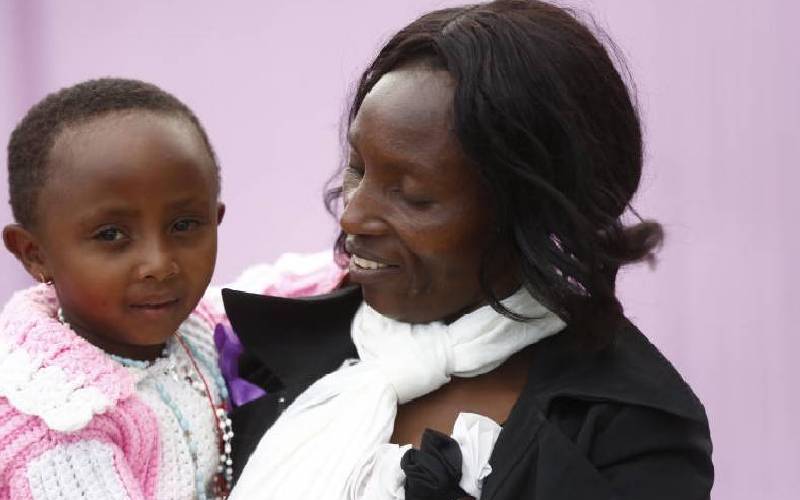×
The Standard e-Paper
Kenya’s Boldest Voice

Olive Waruguru with her mother Margaret Wambui. Olive is one of the youngest cancer survivors placed on palliative care to help relieve pain. [Kipsang Joseph, Standard]
Eight-year-old Faith Kipkurui experiences shortness of breath as she basks in the sun at their Sirikwa home in Kuresoi. Lying on a sack, she is restless and her excruciating pain leaves her father, Abraham Mutai, with haunted, sunken eyes.